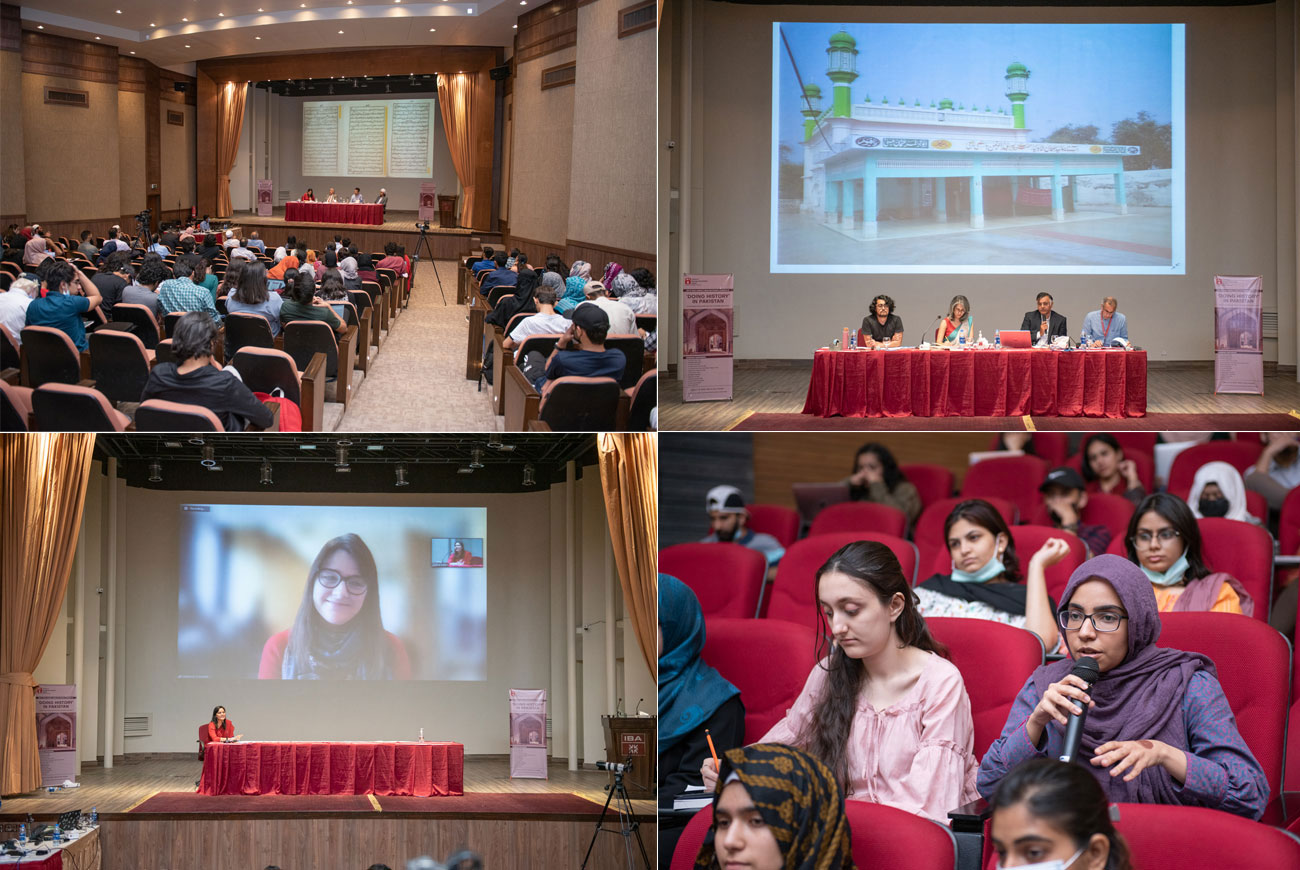IBA's Department of Social Sciences & Liberal Arts presents a WORKSHOP on
'DOING HISTORY' IN PAKISTAN
Comprising three panels, and one roundtable discussion.
Mon/Tue, March 7-8, 2022
Main Campus & City Campus, IBA Karachi
Teaching History in Pakistan has, over the last several decades, been conditioned by what was officially called ‘Pakistan Studies,’ a subject forced upon all intermediate and graduating students. Such ‘history’ as it was taught, has been tedious, both for teachers and students alike, and has limited the desire of students to actually study the discipline of History. In the last decade or so, some individuals have taken to seriously studying History, many abroad, and have returned to teach in universities in Pakistan and have developed creative and innovative ways of studying history, creating interest amongst a handful of their students. Nevertheless, what constitutes teaching and studying History in Pakistan, is still largely constrained by regional and historical boundaries, such as South Asia, Mughal history, the ‘Freedom Struggle’ for independence, and such like.
Even having studied at excellent History Departments worldwide, with their diverse readings of the discipline of History, in content and form, having a very broad canvas, many of us have limited our learning experiences to specific contexts. Hardly any Pakistani historians have ventured forth, outside familiar tracks. Where are the trained food historians, labour historians, historians of culture, or even institutions, in Pakistan, leave alone Pakistani historians teaching Latin American or African History? Or, for that matter, historians addressing questions of theory, and themes of a global or interconnected history? Moreover, relatively few Pakistan historians have concentrated on the history of the strictly ‘local’ in Pakistan (as represented by local languages and the historical experiences of peoples inhabiting the lands constituting the modern Pakistani nation-state since times immemorial). Has the situation in History departments always been such, since the very inception of the Pakistani state, or are these peculiar limitations/trends a somewhat later development?
Our Workshop will offer a platform for historians working in, and on, Pakistan to discuss topics of our discipline, and see how we can innovate themes, subjects, and modes of teaching to our students at local universities. Even if we are obliged to teach Pakistan History/Studies, how can we make it more interesting for students who cannot opt out of studying such subjects? How do we cultivate an interest in the very broad themes of History, teaching just Pakistani History? Through this workshop, we aspire to discuss these and many other interesting questions relating to the topic of ‘doing History’ in Pakistan.
WORKSHOP SCHEDULE:
Mon, Mar 7: 11 AM-1 PM. Venue: G&T Auditorium, Main Campus.
Panel I- Knowledge and Identity in the Persianate Ecumene
Mon, Mar 7: 2:30 PM-4:30 PM. Venue: G&T Auditorium, Main Campus.
Panel II - National Narratives and Local Histories
Mon, Mar 7: 5 PM-6:30 PM. Venue: G&T Auditorium, Main Campus.
Keynote Speech (via Zoom): Dr Katherine Butler Schofield (King's College London),
Archives Differing: Stereophonic Methods, Auditory History, and the Paracolonial Indian Ocean c. 1760–1860
Tue, Mar 8: 9 AM-11 AM. Venue: JS Auditorium, City Campus.
Panel III- Historising Labour, Ecology, and Economy
Tue, Mar 8: 11:30 AM-1:30 PM. Venue: JS Auditorium, City Campus.
Roundtable Discussion: ‘Doing’ History in Pakistan
Workshop Participants: Dr Ahmad Azhar (IBA), Aliya Iqbal-Naqvi (IBA), Dr Fakhar Bilal (QAU), Dr Hasan Haider Karrar (LUMS), Dr Katherine Butler Schofield (King's College London), Mohammad Nabeel Jafri (IBA), Dr Moiz Hasan (IBA), Dr S Akbar Zaidi (IBA), Sajjad Ahmad (IBA), Dr Shayan Rajani (LUMS), Dr Syed Jaffar Ahmed (IBA), Dr Tahir Kamran (BNU), Zahra Sabri (IBA)
